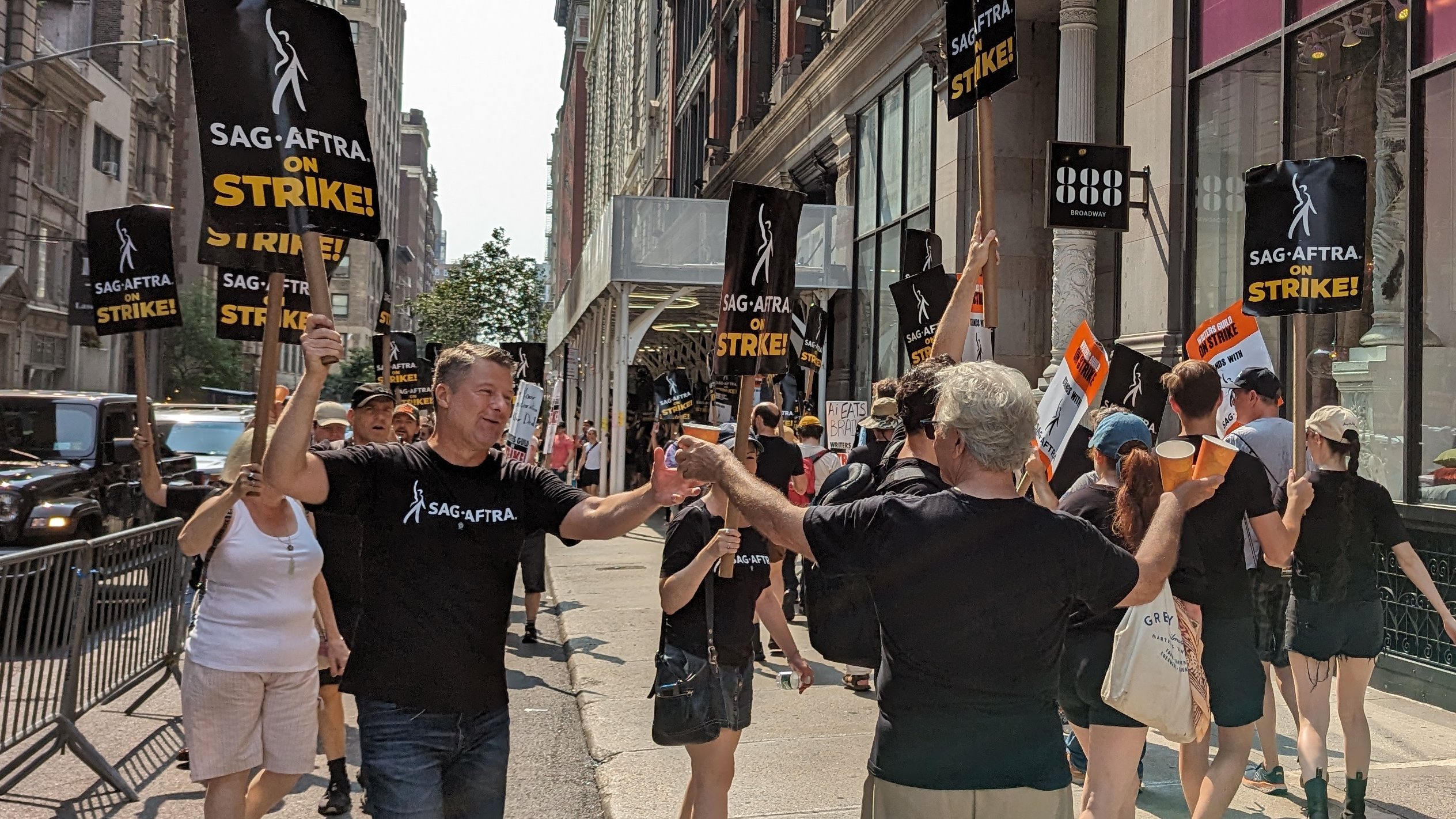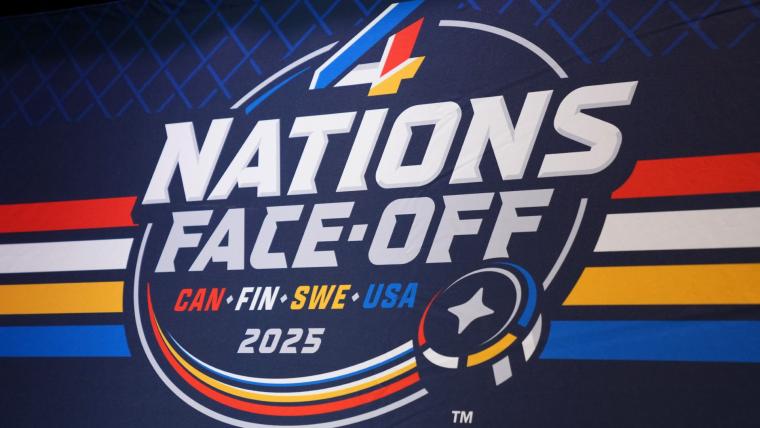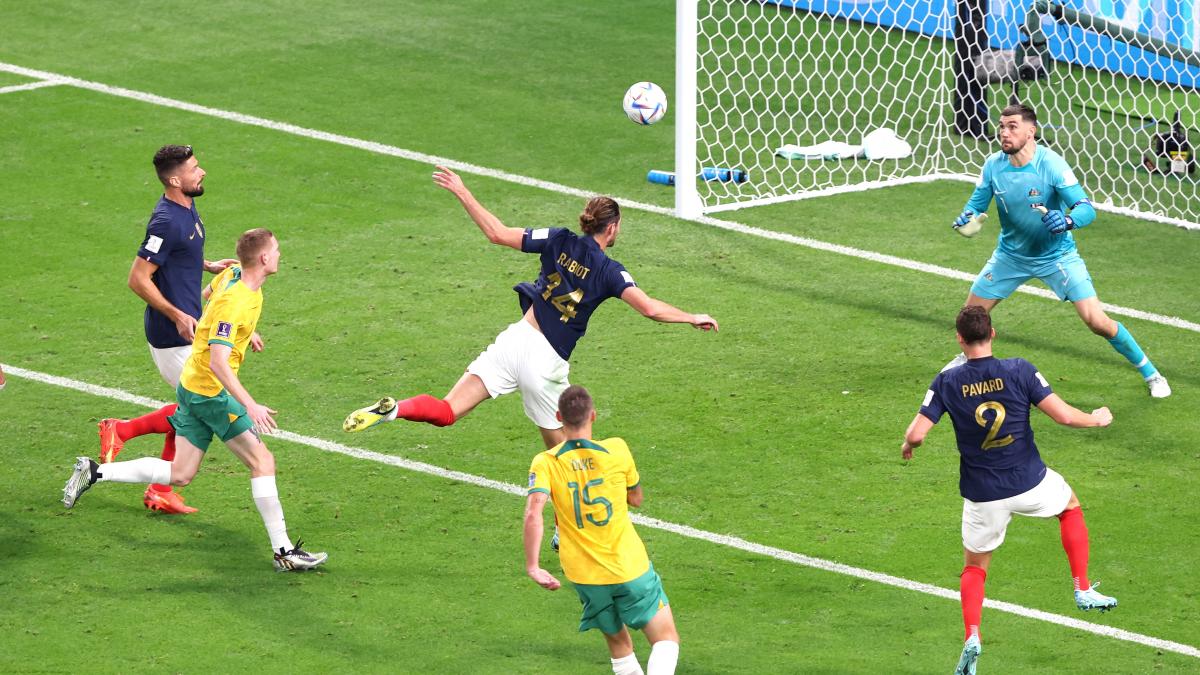Hollywood Production Grinds To Halt As Actors And Writers Strike

Table of Contents
Key Demands Driving the Hollywood Strike
The Hollywood strike isn't simply about money; it's about fairness, job security, and the future of creative work in the age of streaming. Both the WGA and SAG-AFTRA are fighting for significant improvements to their working conditions and compensation models.
-
Fair Wages and Residuals: For decades, writers and actors have seen their earnings diminish, particularly with the rise of streaming platforms. Traditional residuals, payments received each time a show or movie airs, have drastically decreased, even as streaming services rake in billions. Both unions are demanding a fairer share of the profits generated from their work. This includes updated formulas for calculating residuals specifically for streaming platforms.
-
Streaming Royalties: The shift from traditional broadcast television to streaming has created a complex and often opaque system for compensating writers and actors. The WGA and SAG-AFTRA are demanding increased transparency and a more equitable distribution of streaming royalties to reflect the vast reach and profitability of these platforms.
-
AI in Entertainment: The rapid advancement of artificial intelligence poses a significant threat to writers and actors. The unions are seeking strong protections against the use of AI to replace human creativity. This includes safeguards against using AI to generate scripts, rewrite existing material, and create digital replicas of actors without their consent or compensation. The concern is not just about job displacement but also about the devaluation of human artistry.
-
Job Security: The entertainment industry is notorious for its unpredictable nature, with many workers facing periods of unemployment between projects. Both unions are seeking improvements to health insurance, pension plans, and overall job security to ensure a stable livelihood for their members. This includes measures to protect against the increasing use of short-term contracts and gig work.
The Impact of the Hollywood Strike on Production and the Economy
The Hollywood strike's impact extends far beyond the picket lines. The near-total shutdown of production has sent ripples through the entire entertainment ecosystem and the wider economy.
-
Production Delays: Countless film and television projects are on hold, leading to significant delays in release dates and potentially impacting box office revenue and streaming viewership. Major studio productions, independent films, and even reality TV shows are experiencing significant disruptions.
-
Economic Hardship: The strike is causing immense financial strain on many workers in the industry, including actors, writers, crew members, and support staff. Freelance workers, who often lack the safety net of consistent employment, are particularly vulnerable. The ripple effect extends to related industries, such as catering, transportation, and hospitality, which rely heavily on the film and television industry.
-
Television Schedule Disruptions: Late-night talk shows, a staple of the television landscape, have completely ceased production, creating noticeable gaps in programming schedules. This disruption further highlights the strike's significant impact on the viewer experience.
-
Economic Impact Statistics: The economic impact is staggering. Reports estimate billions of dollars in lost revenue for studios, production companies, and related businesses. The long-term consequences of these delays and losses remain to be seen.
The Role of Streaming Services in the Hollywood Strike
The rise of streaming services is at the heart of the dispute. While these platforms have revolutionized the way we consume entertainment, their business models have also created significant challenges for writers and actors.
-
Decreased Residuals: Streaming services often operate on different compensation models than traditional networks, resulting in significantly reduced residuals for writers and actors. This contrasts sharply with the massive profits generated by these platforms.
-
Opaque Compensation Structures: The lack of transparency surrounding streaming revenue and the complex algorithms used to calculate compensation further fuel the unions' grievances. The unions are demanding greater accountability and a more equitable share of the profits.
-
Negotiations with Streaming Giants: Negotiations with major streaming services like Netflix, Disney+, and HBO Max are proving to be particularly challenging, highlighting the significant power imbalance between the unions and these powerful corporations. The unions argue that these companies are profiting handsomely from their work without fairly compensating the creative workforce.
Potential Outcomes and Future of the Hollywood Strike
The resolution of the Hollywood strike remains uncertain, but several potential outcomes are possible.
-
Compromise and Concessions: A negotiated settlement will likely involve compromise from both sides. This could include adjustments to compensation models, improved residuals for streaming, and stronger protections against AI.
-
Industry Reform: The strike could lead to lasting changes in the entertainment industry, including a renegotiation of power dynamics between studios and unions. This might involve the establishment of clearer guidelines regarding the use of AI in creative work, better transparency in streaming revenue, and improved working conditions.
-
Long-Term Impact: The strike's long-term impact on the film and television landscape remains to be seen, but it's clear that the industry will be fundamentally changed. This could range from changes in production schedules and budgets to significant shifts in how creative work is valued and compensated.
Conclusion
The Hollywood strike, encompassing both the actors strike and the writers strike, signifies a pivotal moment in the entertainment industry. The core issues—fair compensation, the impact of streaming services, and the ethical use of AI—represent fundamental challenges facing creative workers in the 21st century. The outcome of these negotiations will profoundly shape the future of film and television production for years to come. Stay informed about the developments in the Hollywood strike and its impact on your favorite shows and movies. Follow reputable news sources for updates and learn more about the demands of the WGA and SAG-AFTRA to fully understand the complexities of this critical labor dispute. Understanding the actors strike and the writers strike is key to comprehending the future of entertainment.

Featured Posts
-
 500 000 Pei Bill For Nhl 4 Nations Face Off Legislature Details
May 16, 2025
500 000 Pei Bill For Nhl 4 Nations Face Off Legislature Details
May 16, 2025 -
 Menko Ahy Bahas Psn Giant Sea Wall Jadwal Pembangunan Dimulai
May 16, 2025
Menko Ahy Bahas Psn Giant Sea Wall Jadwal Pembangunan Dimulai
May 16, 2025 -
 Cassidy Hutchinson Memoir A January 6th Insiders Account
May 16, 2025
Cassidy Hutchinson Memoir A January 6th Insiders Account
May 16, 2025 -
 0 1 Victoria De Bahia Ante Paysandu Resumen Y Goles
May 16, 2025
0 1 Victoria De Bahia Ante Paysandu Resumen Y Goles
May 16, 2025 -
 Paddy Pimblett Targets Ilia Topuria Ufc 314 Fight Wishlist
May 16, 2025
Paddy Pimblett Targets Ilia Topuria Ufc 314 Fight Wishlist
May 16, 2025
